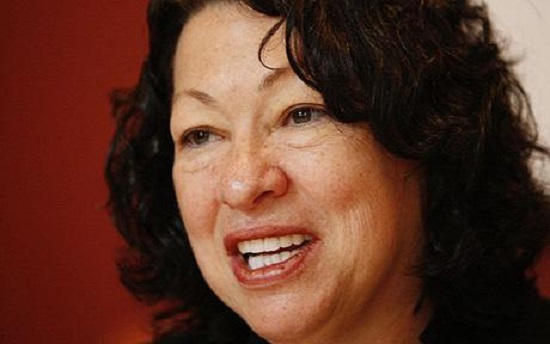Liberal Supreme Court Justice Sonia Sotomayor encouraged law students Wednesday to lobby against the Texas heartbeat law, which is saving babies from abortion every day.
Speaking to law students at Tufts University in Boston, Massachusetts, Sotomayor expressed frustration at some of her fellow justices’ recent rulings, Business Insider reports.
An appointee of pro-abortion President Barack Obama, she specifically mentioned the Texas heartbeat law, which is now in effect. On Sept. 1, the Supreme Court ruled 5-4 against a request to temporarily block the law – a surprising move that Sotomayor and the other liberal judges blasted in harsh dissents.
“There’s going to be a lot of disappointments in the law, a huge amount,” Sotomayor told the law students at a diversity event hosted by the American Bar Association, according to the Washington Post. “As you study cases and look at outcomes you disagree with, it can get frustrating. Look at me, look at my dissents.”
Her dissent in the Texas case described the pro-life law as “flagrantly unconstitutional.” She said it was “stunning” that the majority on the court “opted to bury their heads in the sand” rather than block the law.
Follow LifeNews.com on Instagram for pro-life pictures and videos.
Though Sotomayor could not stop the pro-life law, she told the law students that they can.
“I can’t change Texas’s law, but you can,” she said, according to the report. “You can, and everyone else who may or may not like it can go out there and be lobbying forces in changing laws that you don’t like. But the point is, there are going to be a lot of things you don’t like.”
Though about a dozen states have passed similar heartbeat laws, Texas is the first to be allowed to enforce its law. The others have been blocked by the courts. If upheld, it has the potential to save tens of thousands of babies from abortion every year. Pro-life leaders estimate the law already has saved as many as 2,800 babies from violent abortion deaths.
The Supreme Court has a conservative majority, and their recent decisions are giving pro-life advocates hope that more states will be allowed to protect unborn babies from abortion again soon.
Still, the court battle over the Texas pro-life law is far from over. A federal judge is scheduled to consider the Biden administration’s challenge on Friday.
Though the Supreme Court refused to block its enforcement, the justices made it clear that they were not ruling on its constitutionality. They sent the case back to the lower courts for consideration.
However, the temporary ruling is significant. It has left many speculating about the courts’ willingness to overturn Roe v. Wade in the future.
The New York Times wrote: “[T]he ruling was certain to fuel the hopes of abortion opponents and fears of abortion rights advocates as the court takes up a separate case in its new term this fall to decide whether Roe v. Wade, the landmark 1973 decision establishing a constitutional right to the procedure, should be overruled. It also left Texas abortion providers turning away patients as they scrambled to comply with the law, which prohibits abortions after roughly six weeks.”
The high court is scheduled to hear another major abortion case out of Mississippi on Dec. 1 and consider whether states may protect unborn babies from abortion prior to viability.
In 1973, the U.S. Supreme Court took away the states’ ability to protect unborn babies from abortion under Roe v. Wade, and instead forced states to legalize abortion on demand. Roe made the United States one of only seven countries in the world that allows elective abortions after 20 weeks.
Since Roe, nearly 63 million unborn babies have been legally aborted in the U.S. Polls consistently show that a strong majority of Americans oppose abortions in the second and third trimesters and many support heartbeat laws that protect unborn babies at their earliest stage of life.








